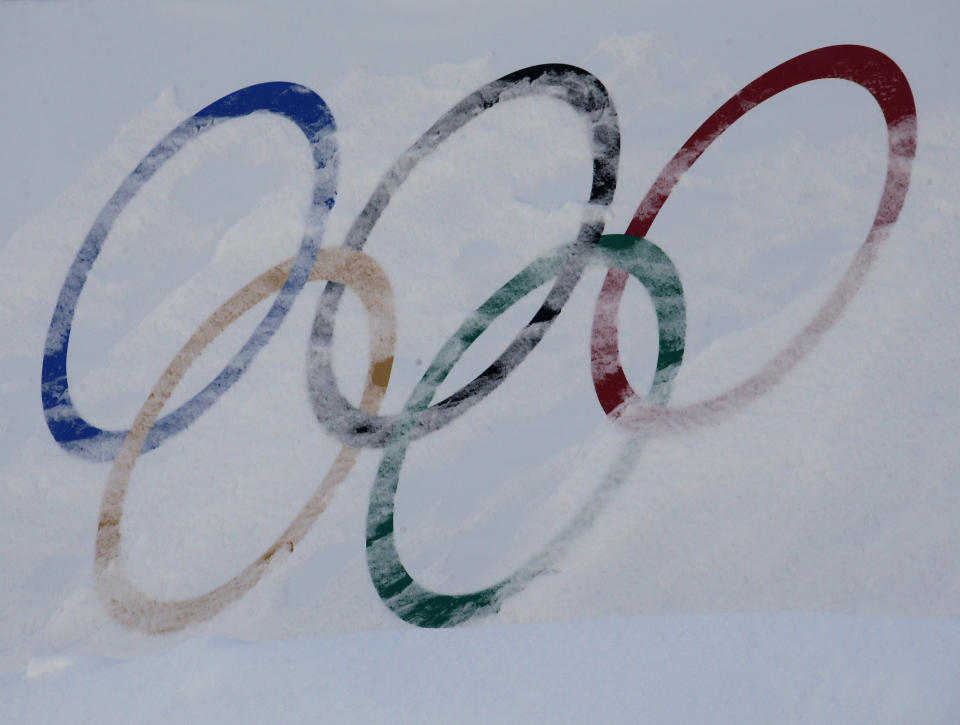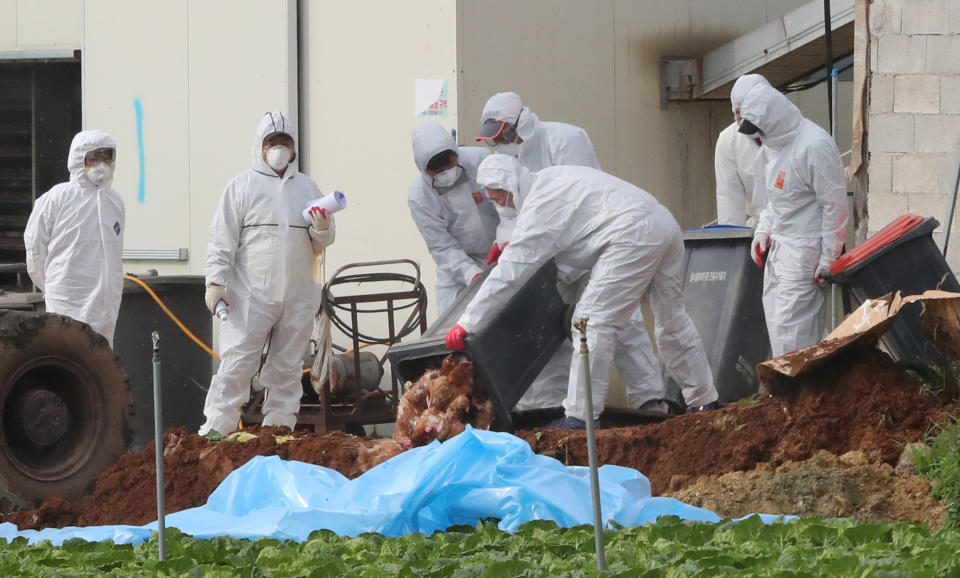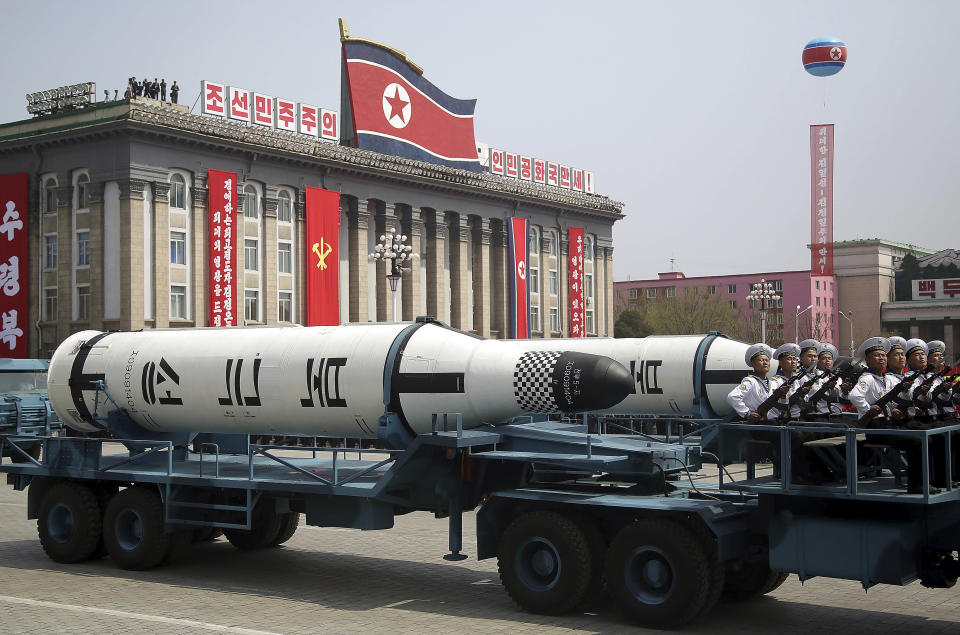Five problems facing the Winter Olympics in PyeongChang
What is it about the Olympics and peripheral problems that seem to go together like Tara Lipinski and Johnny Weir?
At the 2014 Games in Russia, problems were so rampant that “Sochi Problems” became a hashtag, a meme and a dedicated subreddit. Two years ago in Rio, a litany of troubles, ranging from Zika-carrying mosquitoes to human body parts washing up on beaches slated for volleyball matches threatened to overshadow the Games before they had even begun.
Obviously, organizing a weeks-long global event and inviting athletes from 92 countries to participate is bound to lead to a few hiccups. Thankfully, the South Korean Olympic Committee appears to have done a decent job of minimizing the kind of niggling problems that plagued Rio and Sochi. But as the opening of the Games fast approaches, there remain a number of potential troubles looming for the PyeongChang Olympics.
Another IOC legal scandal?

It’s unfortunate that global sporting events like the Olympics and World Cup seem consistently dogged by scandal. The last thing the International Olympic Committee needs on the eve of the 2018 Games is yet another story alleging corruption. Unfortunately, that’s exactly what we have; courtesy of a New York Times report that United States federal prosecutors have issued grand jury subpoenas to the IOC, the U.S. Olympic Committee and soccer’s governing body, FIFA.
The subpoenas seem centered around specific track and field events awarded to the U.S. and Qatar. But heading into one of your showpiece events on the back of being subpoena’d by federal prosecutors is not a great look for an IOC still dogged by allegations of bribery related to the 2016 Rio Olympics. Or for a USOC reeling in the aftermath of the sexual abuse conviction of former U.S. gymnastics team doctor Larry Nassar.
Record-breaking cold

Winter temps just about everywhere are unseasonably warm this year, except in PyeongChang. After two consecutive Winter Olympics – Vancouver 2010 and Sochi 2014 – where is was so warm the snow melted, you’d think a nice frosty Winter Games would be welcome. We shall see. Because by all accounts, it’s going to be bitterly cold in PyeongChang.
According to forecasts, the 2018 Games could break the record for the coldest ever Winter Olympics, set at the 1994 Winter Games in Lillehammer, Norway. Temps at those Games dropped to as low as 12 degrees Fahrenheit. But in PyeongChang, organizers are preparing for temps during the Opening Ceremony that with wind chill could fall to as low as 7 degrees Fahrenheit.
This could be particularly challenging, as the stadium where the ceremony will take place has no roof or central heating. In November, six people who attended a concert at the venue were treated for hypothermia. Despite plans to counter the biting cold by handing out heating pads and blankets, there are already reports of some fans with tickets planning to skip the Opening Ceremony.
People getting sick

Two years ago in Rio, it was mosquitos and Zika. This year, it’s bird flu. Namely, a highly pathogenic strain of the H5N6 avian influenza virus discovered at a pair of chicken farms located 80 miles from PyeongChang. The World Health Organization has logged 16 human cases of this particular strain of bird flu since 2016, with six deaths reported.
With roughly 3,000 athletes and 100,000 spectators about to descend on the region, the government is taking no chances. Already, some 334,000 chickens have been culled and the slaughter of 430,000 more on nearby chicken farms has been ordered. Adding to flu concerns, are an outbreak of norovirus among Olympic security staff and reports of a potentially deadly strain of seasonal flu in North Korea.
Speaking of North Korea . . .

Everyone loves a parade. Unless of course that parade includes the rollout of dozens of long-range ballistic missiles capable of striking the United States mainland, and is scheduled for the day before the Olympics Opening Ceremony. And that, apparently, is what North Korea is planning.
This untimely display of North Korean saber rattling comes in spite of inter-Korean talks that resulted in the North sending a delegation of 22 athletes to the Games. The two Koreas are also planning to march out together under one flag, and to field a joint female hockey team – the first time athletes from the North and South have competed together at the Olympics.
Adding to the tensions are reports that Vice President Mike Pence, who will lead the White House delegation to the Games, plans on taking every opportunity to, according to an aide via Axios, “remind the world that everything the North Koreans do at the Olympics is a charade to cover up the fact that they are the most tyrannical and oppressive regime on the planet.”
Thankfully, in spite of the tensions, the U.S. State Department maintains it’s not aware of any specific threats related to the Games.
Russian hackers? Again?
Anyone following the story of Russian hacking related to the 2016 election is likely familiar with the Kremlin’s GRU military intelligence agency – more commonly known as Fancy Bear. Apparently the group that hacked the Democratic National Committee and the Clinton campaign has since turned its attention to athletic organizations belonging to Western nations.
The group’s aim, apparently, is to expose evidence of doping in Western countries in retaliation for the banning of Russian athletes from the last two Olympics. Already, the hacking group has published two sets of hacked documents related to the Winter Olympics, as well as private medical records for star athletes Venus William, Serena Williams and Simone Biles.
While none of those women are competing in these Games, and Western media has largely ignored the hackers’ releases, over the past 18 months or so, we’ve become all-too-familiar with meddlesome, undermining effect Russian hacking can have.

 Yahoo Sports
Yahoo Sports 
